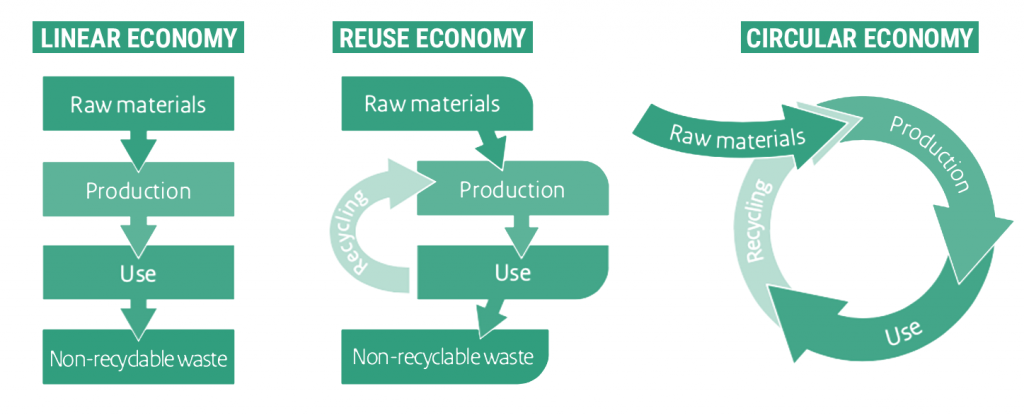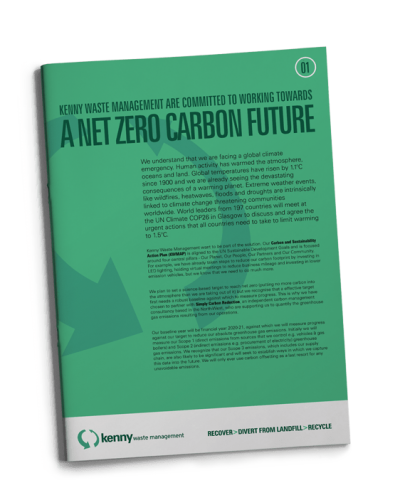The Circular Economy
There’s a lot of exciting noise surrounding the Circular Economy, but it’s often not clear where different businesses fit in and how it can be achieved. Responsible waste management is part of the solution that adds circularity to the UK economy. Let’s talk about what that actually means.
What is the Circular Economy?
The circular economy closes the loop of the product lifecycle. It aims to extend the lifespan and productivity of resources by reusing products where possible, recycling waste materials as a norm, and recovering unrecyclable waste to generate energy.
A truly “circular” economy would eliminate all waste, which isn’t technically possible, so it’s easier to think of a sliding scale between linear and circular economic activity.
In a linear economy, raw materials are used to create products that are immediately disposed of after they have fulfilled their intended use. Wasting raw materials in the production line is typical, obsolescence is built in, and landfill is plan A for disposal.
In a circular economy, waste is eliminated by preparing all products and materials for reuse, recycling, and recovery.
In the middle of that sliding scale, we have a reuse economy where circularity has been added but avoidable waste is still present.

Source https://www.government.nl/topics/circular-economy/from-a-linear-to-a-circular-economy
Where do we fit in?
We contribute to economic circularity by treating waste as a resource. By preparing materials for reuse, recycling, and recovery, we keep those waste materials further away from landfill and extend their productivity.
Our bespoke waste management solutions are designed with our customers’ environmental goals in mind, as well as our own, so we are always looking for new ways to breathe new life into waste materials.
What are the benefits?
A more circular economy offers more economic growth to the UK. It’s difficult to make precise predictions because the economy has so many moving parts, but more economic circularity could be worth £9-29bn per year and create 10,000-175,000 jobs (across all skill levels) by 2030.
By reducing our dependency on raw materials and virgin plastics, we can cut carbon emissions and give natural habitats the chance to thrive. There is no single solution to the global climate emergency, but the Circular Economy is part of the wider approach to caring for our planet while reducing avoidable waste.
The UK government launched its resources and waste strategy in 2018, which set long-term goals for a circular economy. Those goals included eliminating all avoidable waste and doubling resource productivity.
This means that manufacturers will need to design future products and packaging with reuse and recycling in mind. By thinking about the whole product lifecycle before a product’s inception, we can consider its impact and opportunities to recapture value that would otherwise be lost.
Moving away from a linear economy requires a new mindset that recognises the limits of our planet’s natural resources and utilises the full spectrum of responsible waste management practices.

Our Journey to net zero
Kenny Waste Management want to be part of the solution. Our Carbon and Sustainability Action Plan (KWMAP) is aligned to the UN Sustainable Development Goals and is focused around four central pillars – Our Planet, Our People, Our Partners and Our Community. We have already taken steps to reduce our carbon footprint by, for example investing in LED lighting, holding virtual meetings to reduce business mileage and investing in lower emission, cleaner fleet vehicles but we know that there is so much more to do.
Read “Our journey to net zero” statement for an overview of our commitments.


